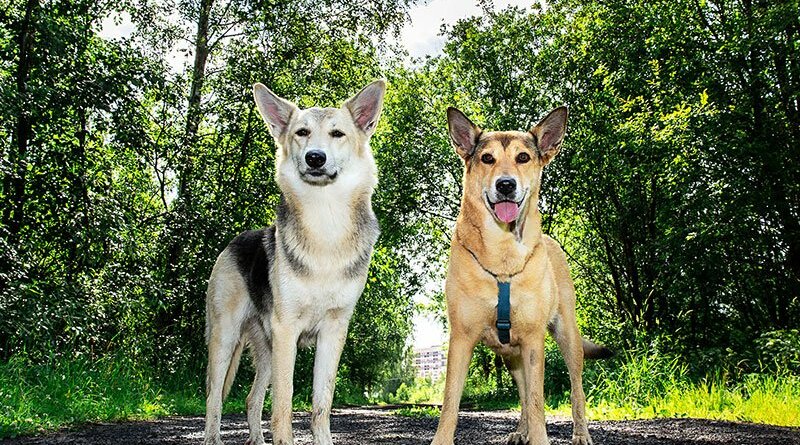Should I Get a Second Dog?
Dear Bark: My dog is getting older, he likes playing with other dogs and he doesn’t like to be left alone. I want him to have the best life possible, and I’ve heard a dog buddy is the key. Should I get a second dog? The thing is, I don’t know how I feel about having two dogs.
Your goal of giving your dog the best life possible is lovely, and the first thing I recommend is trying some ways you can do that directly. People often wonder should I get a second dog to keep my dog company? If your thoughts of another dog are motivated primarily by a desire to do right by your current dog, there are other ways to do it.
Adding a second dog to your household is a big decision, and while I can share general suggestions and points to consider, only you can decide if it’s the right thing to do. The best advice I can give you is this: Only welcome another dog into your life if you want one. The responsibility for caring for a new dog will be on your shoulders and the decision should be based on what you honestly feel you’re willing and able to do.
As you know, dogs require a big commitment of time, money and emotion. It’s critical that the entire household is in agreement about getting a second dog, and the reasons for adopting another one should involve more than a desire, however well-intentioned and heartfelt, to make your current dog happy. That means don’t do it if your primary purpose is to fix a problem your current dog is having, or to fill some absence in his life.
GET THE BARK NEWSLETTER IN YOUR INBOX!
Sign up and get the answers to your questions.
Once you decide that you truly want another dog, here are some factors to consider.
Are Dogs Happier With Another Dog?
Some dogs, including some older dogs, are thrilled to have a new dog in the family. Many times, I’ve seen older dogs enjoy new dogs, whether the new dog is an adult, an adolescent or a puppy. Sometimes, the addition of a younger, more playful dog will reinvigorate an older dog. They become more cheerful, more vibrant and somehow more alive in their golden years, which is a beautiful thing to see.
On the other hand, I’ve also seen plenty of older dogs who are not happy to share their space and their people with a new dog. They end up irritated, and what should be a peaceful time in their life may be less serene because they are bothered by too much pestering.
This is where considering your dog’s perspective comes into play. How do you know which category your dog would be in? There’s no way to know for sure, but there are clues you can use to make your best guess.
If your dog generally likes to play with other dogs, seems happy to see them while out on walks and has met many dogs with whom he has had positive encounters, he is more likely to welcome a new dog. If he’s easily able to handle other dogs around his food and toys, that also bodes well for him enjoying a new dog.
If your dog enjoys dogs briefly and is then ready to get away, he may not enjoy having another dog in the house all day, every day. If he has arthritis or other chronic pain, he may also find it physically uncomfortable to have a play buddy around all the time. If he objects to other dogs coming up to you, seeking your attention or being petted by you, he may struggle with having another dog in the family. These potential issues are not deal breakers, but they mean that you’ll likely need to do more work once you’ve brought a new dog into the house. It may also mean that the dogs will need to be separated in certain situations or for some part of each day.
If you decide to adopt a dog, choosing one who is compatible with your dog will increase the chances that the addition will have a positive impact. Two traits to consider are activity levels and play style. If your dog wants to play for five minutes a couple of times a day and the new dog wants to play whenever she’s not asleep, that will pose a challenge to their relationship. If your dog likes to wrestle and the new dog is all about chase games, that will require more compromise and teamwork than if they both enjoy tug, for example.
Age and size matter in some cases, but they are not necessarily as important as other qualities. Dogs of different ages and sizes can be the best of friends, but similarities in those categories may make it easier for them to develop a strong friendship.
And then there’s gender. Millions of people have two female or two male dogs, but adopting a dog of the opposite sex is often advised, as it tends to reduce risk of fights. While there’s no clear evidence related to how important gender might be in this situation, many behaviorists (including me) anecdotally report that most of the worst cases of intra-household fighting tend to involve dogs of the same sex. So, all things being equal, consider adopting a female since you already have a male.
Your dog is lucky to have someone who cares so much about his happiness!




